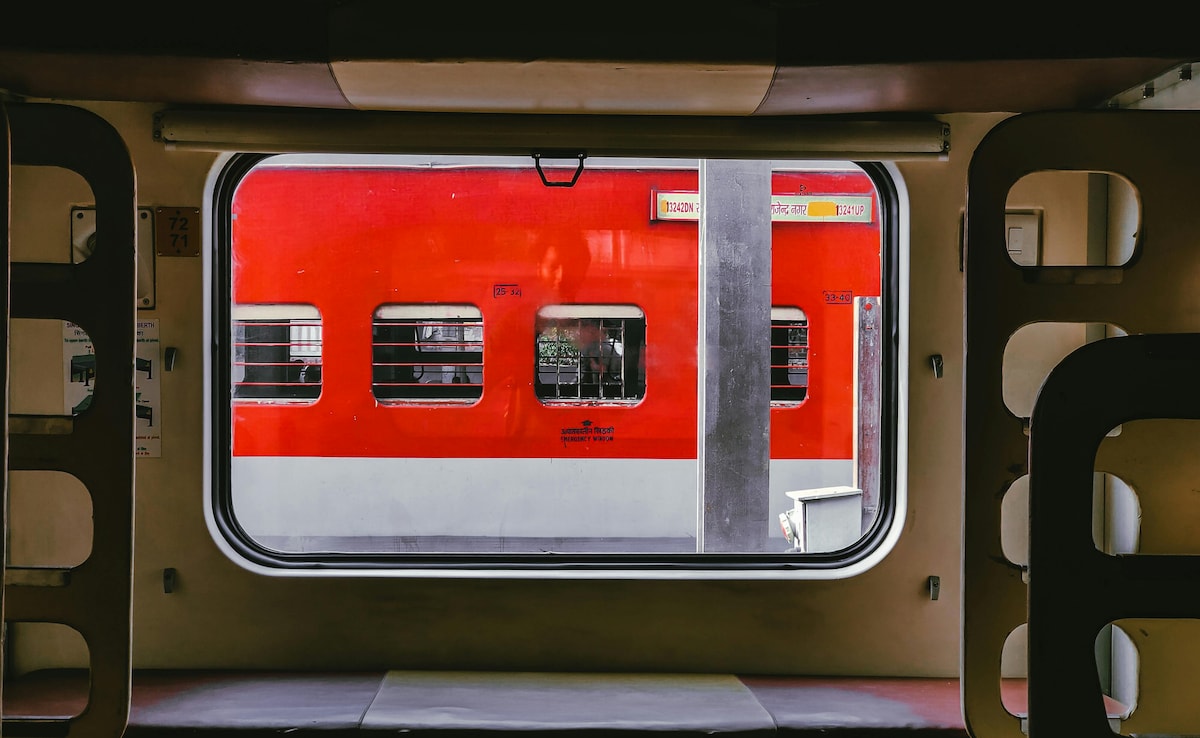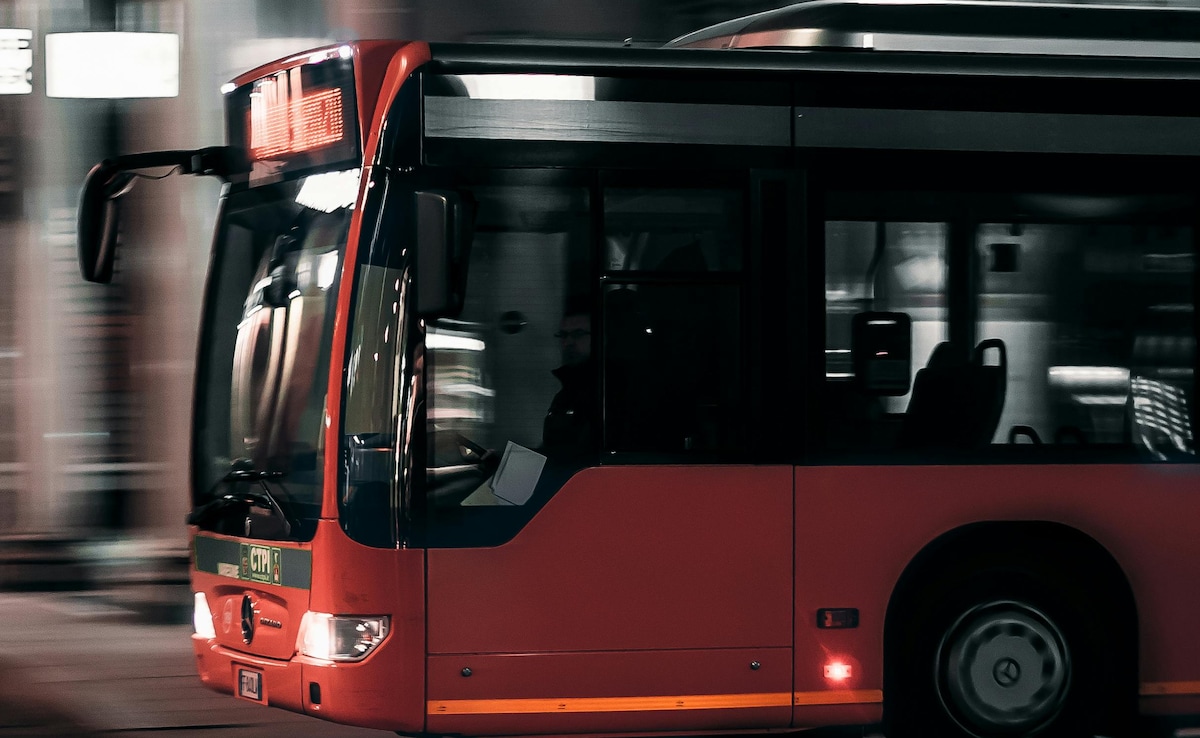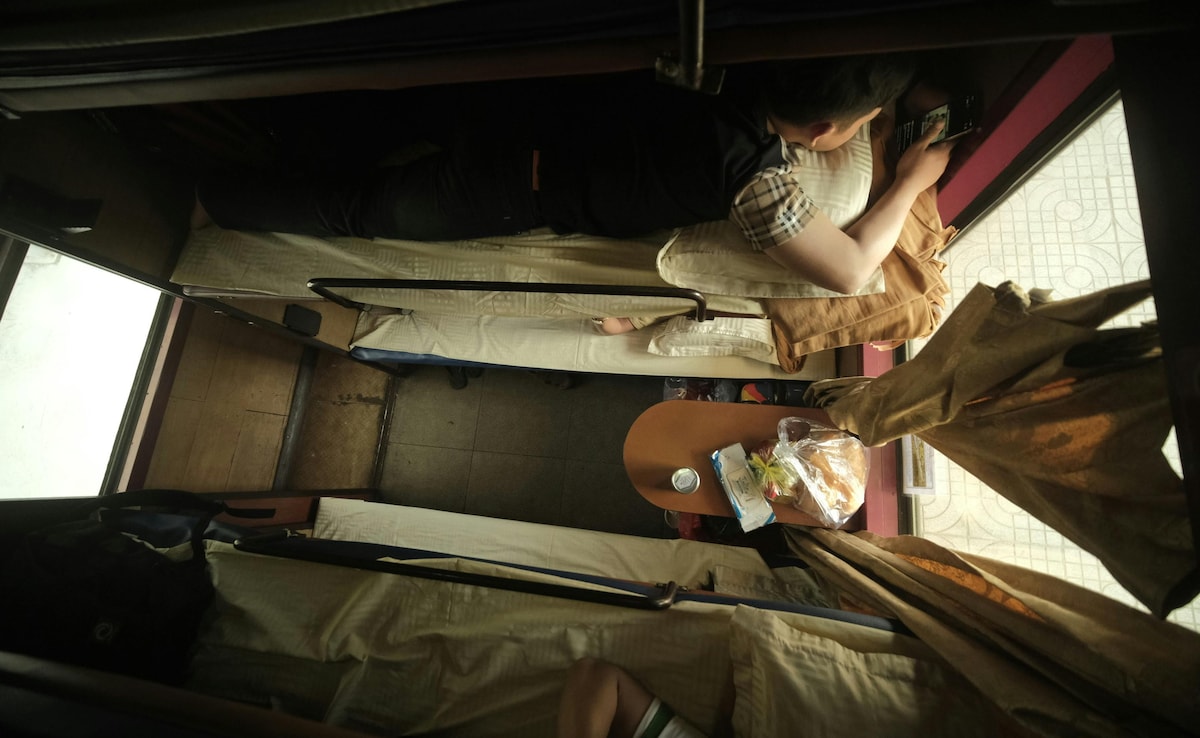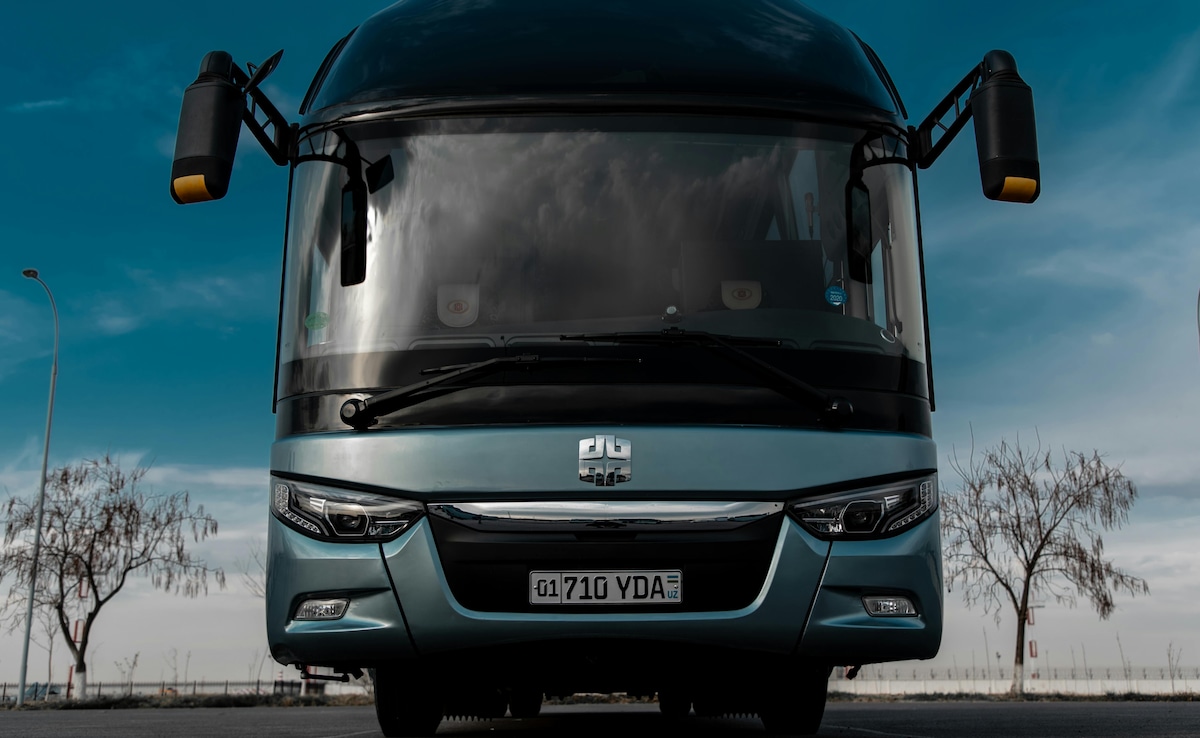
Ever found yourself in the dilemma of whether to book a train or hop on a bus? You are not alone. Whether it is a quick weekend escape, a spontaneous solo trip, or a budget-friendly getaway with friends, choosing the right mode of transport can feel like a mini puzzle. Trains bring nostalgia, legroom, and steaming chai at every station. Buses promise flexibility, privacy, and tech-driven comfort. Both have loyal fans, and both have evolved in ways that make the decision more complicated in 2025.
So, how do you choose? We spoke to frequent travellers, looked at data, and compared everything from ticket prices to eco-friendliness. Here is a guide that breaks down the options, helping you choose what works best for your style and your wallet.
Also Read: Eat Your Way Across India: 6 Train Journeys Where Food Takes The Spotlight
Why Are Trains Still Popular Among Young Travellers?
Trains have long been the backbone of Indian travel. Even today, they continue to attract young travellers for several reasons:
1. Affordability:
Sleeper class and second AC tickets remain cheaper than most premium bus fares, especially for long distances.
2. Group travel:
Trains allow friends to sit together, share snacks, and stretch out, making them ideal for college trips or family holidays.
3. Overnight convenience:
Sleeper coaches make it easy to travel overnight and save on hotel costs.
4. Railway network reach:
Trains connect even the most remote towns and hill stations, often with a better frequency than buses.
"I prefer trains for longer journeys. You can move around, sleep properly, and the vibe is more social," stated Shamaita, a 22-year-old student from Delhi.

Photo Credit: Pexels
Why Are Buses Gaining Ground In 2025?
While trains remain iconic, buses have stepped up their game. Premium AC sleeper coaches are becoming the first choice for many young professionals and solo travellers, particularly for short distances.
1. Flexible timings:
Buses offer multiple departures throughout the day, unlike fixed train schedules.
2. Smart features:
Many buses now come with charging ports, curtains, reclining seats, and even onboard washrooms.
3. Easy boarding:
Bus terminals are often closer to city centres or residential areas, saving time and cab fare.
4. Last-minute bookings:
Trains require advance planning, whereas buses can be booked on short notice.
"I take the intercity buses from Hyderabad to go to Bangalore and Chennai frequently. They are clean, quiet, and I get work done during the ride," shared Anand, a 26-year-old engineer.
Also Read: Travelling By Bus? These 11 Tips Can Save Your Sleep, Back And Sanity
Bus Or Train: Which One Is Cheaper?
The choice often comes down to fares.
- Trains: On routes like Delhi to Lucknow, sleeper class tickets start around Rs. 500, while AC 3-tier can go up to Rs. 2,500.
- Buses: AC sleeper buses on the same route range from Rs. 700 to Rs. 1,200, depending on the operator and time of booking.
The verdict: During peak seasons, fares vary for both. However, trains usually offer more predictable rates, while bus prices fluctuate depending on demand and departure time.
Expert Tip: Booking early helps you lock in better rates for both bus and train. Promo codes on booking sites can also secure discounts.

Photo Credit: Pexels
Which Is More Comfortable For Overnight Travel?
Comfort is a major factor, especially on longer journeys.
- Trains: They provide more legroom, the ability to walk around, access to washrooms, and sleeping berths.
- Buses: Premium buses now offer reclining seats, privacy curtains, charging ports, and quiet cabins. Some even provide blankets and water bottles.
The verdict: Buses usually lack onboard toilets, which can be inconvenient for long routes. Trains are more comfortable for journeys over 500 kilometres, while buses are better for shorter trips.
Is Train Travel Safer Than Bus Travel In India?
Safety is a common concern when deciding between buses and trains.
- Trains: Reserved compartments, police patrolling, and dedicated coaches for women make trains safer for overnight journeys.
- Buses: Safety has improved, especially on major intercity routes, but luggage is usually stored in undercarriage compartments, which are less accessible.
The verdict: For solo travellers or those carrying valuables, trains offer more reassurance. For business trips with minimal luggage, buses are more convenient.
Also Read: 7 Tips To Remember For Hassle-Free Train Journey - Travel
Which Is Eco-Friendlier And More Sustainable?
Sustainability is shaping how young people travel in India.
- Trains: Electrification has made rail travel more eco-friendly, with Indian Railways actively reducing diesel usage.
- Buses: Under the PM E-Drive scheme, 14,028 electric buses are expected to be deployed by March 2026. Cities like Delhi, Mumbai, Hyderabad, and Bengaluru already have growing green fleets.
Both modes are evolving towards sustainability, giving eco-conscious travellers better choices than ever before.
Onboard Food And Entertainment: What Do You Get On The Ride?
Meals and entertainment are often the underrated deal-breakers in travel choices.
- Trains: Pantry cars, IRCTC catering, and endless station food stalls make train journeys a mini food crawl. From samosas and cutlets to chai served in kulhads, the food culture of Indian trains is unmatched. On trains like the Rajdhani or Shatabdi, meals are included in the ticket price, making the journey both convenient and cost-effective. Entertainment, however, remains old-school. Travellers bring their own books, music, or downloaded shows while relying on patchy mobile networks.
- Buses: Food and entertainment look different here. Buses usually stop at roadside dhabas or food courts during the ride. This can be hit or miss, so many travellers carry their own snacks. Premium operators are upping the game with bottled water, refreshments, WiFi, and sometimes personalised screens for streaming. Curtains for privacy and quiet cabins mean uninterrupted podcasts or movie marathons without distractions.
The verdict: Trains win for sheer variety of food and the cultural experience that comes with it. Buses are catching up, especially for those who prefer curated and tech-driven entertainment.
Also Read: Going On A Long Bus Ride? These Essentials Can Make Or Break Your Ride

Photo Credit: Pexels
Booking Experience: Apps, Digital Payments, And Ease Of Use
The way we book tickets today is just as important as the journey itself.
- Trains: IRCTC remains the main platform for train bookings, but anyone who has tried reserving a seat during festival season knows it can be stressful. Tatkal tickets sell out within minutes, the interface feels outdated, and cancellations require multiple steps. That said, new features like QR code scanning, e-wallet payments, and real-time updates have improved the system compared to a decade ago.
- Buses: Private operators rely heavily on apps like redBus, Paytm, and AbhiBus. These are simple to use, allow last-minute bookings, and let passengers compare seat layouts, read reviews, and grab cashback deals. Payments through UPI and digital wallets are seamless. Customer support through these apps also tends to be more responsive than traditional railway helplines.
The verdict: For planned long-distance travel, trains offer the best value. But for young travellers who value flexibility and a smooth digital experience, bus apps are hard to beat.
Also Read: Why Travelling By Trains Is Still The Most Underrated Way To See The Country
Travel Time And Convenience: Which One Is Faster?
Time often decides the winner.
- Trains: Express trains like Shatabdi, Rajdhani, or Vande Bharat can cover 500 km in 6-8 hours.
- Buses: AC sleeper buses take 8-10 hours for the same distance, depending on traffic and rest stops.
The verdict: Trains are faster for long-distance travel. Buses, however, offer convenience for shorter journeys or routes where train connectivity is limited.
Which Mode Is More Accessible For Travellers?
Accessibility plays a huge role in decision-making.
- Railway stations: Often located in congested areas or on the outskirts, requiring extra travel time.
- Bus terminals: Private operators usually have multiple pick-up points spread across cities, making them easier to reach.
So, if your hotel or home is closer to a bus terminal, a bus is likely the more efficient option. If you are travelling to a well-connected destination, trains remain the more reliable choice.
What Are Young Travellers Choosing In 2025?
According to the redBus India BusTrack Report, young travellers are increasingly choosing buses for short and mid-range trips due to flexibility, comfort, and tech-driven features. For longer journeys, trains remain popular due to their affordability and safety.
Another survey by Travelfika found:
Travel Type | Preferred Mode |
| Weekend Getaways | Bus |
| Long-Distance Trips | Train |
| Solo Business Travel | Bus |
| Group College Trips | Train |
Choose What Suits Your Travel Personality:
There is no single correct answer when it comes to choosing between buses and trains. It depends on:
- Distance and duration
- Budget and flexibility
- Comfort and privacy needs
- Safety and luggage concerns
- Eco-consciousness and convenience
If you love scenic views, social vibes, and stretching your legs, trains are your best option. If you value privacy, tech-enabled comfort, and doorstep pick-up, buses make more sense.
Also Read: Best Bus Seats For Long Journeys In India - And How To Book Them Right

Photo Credit: Pexels
Still wondering whether to take the bus or the train? These are some of the key factors to consider before booking a bus or train:
Which is better for travel in India: bus or train?
It depends on distance, budget, and comfort preferences. Trains are generally better for long journeys, whereas buses are more suitable for shorter trips.
Are buses cheaper than trains in India?
Yes, for short distances, buses can be cheaper. However, trains usually provide better value on longer routes.
Is train travel safer than bus travel in India?
Trains are generally safer for overnight journeys due to reserved compartments and security measures. Buses, however, are improving safety with the addition of night guards and female-only seating areas.
Which is better for solo female travellers: train or bus?
Trains are usually safer due to designated coaches, RPF patrolling, and verified bookings. Reserved train compartments are a better choice than unknown bus routes.
Do buses have toilets in India?
Most buses do not have onboard toilets. They stop twice during journeys for refreshments. However, some premium buses now provide washroom access.
Can I carry more luggage in a bus or train?
Trains offer more storage with overhead racks and under-seat space. Buses have limited capacity and often store luggage in external compartments.
Which one is more flexible for last-minute travel?
Buses usually have frequent departures and allow same-day bookings. Trains often sell out early, especially on busy routes.
Track Latest News Live on NDTV.com and get news updates from India and around the world

